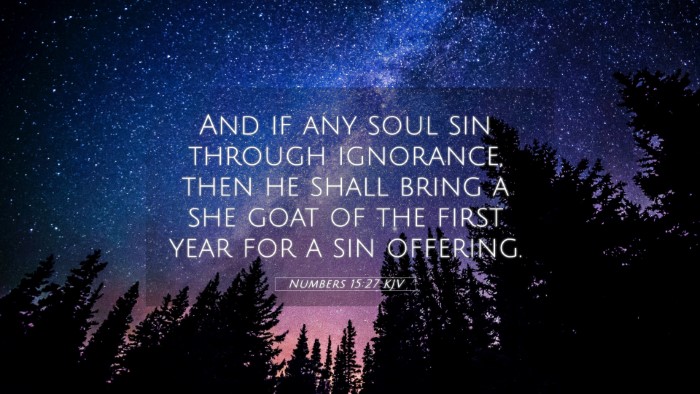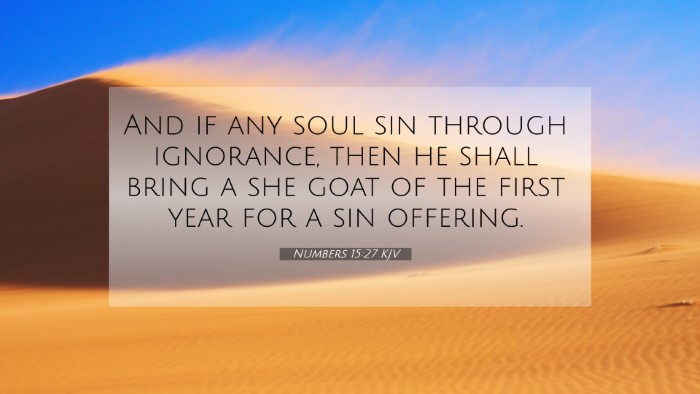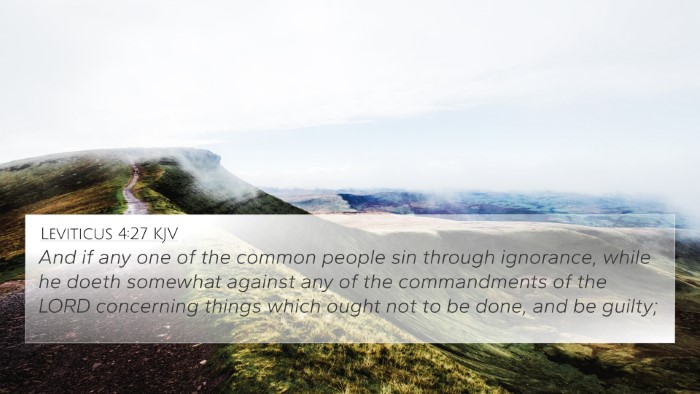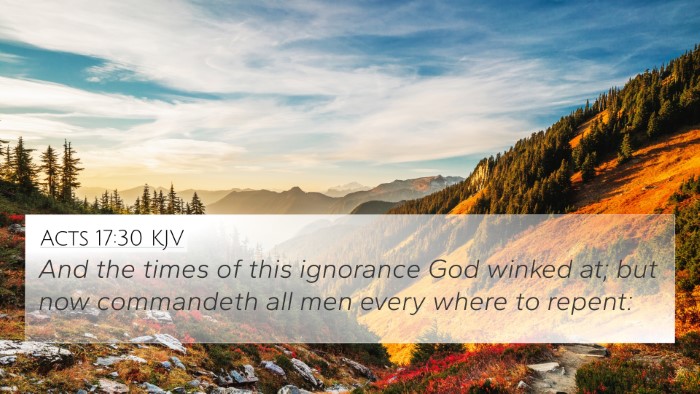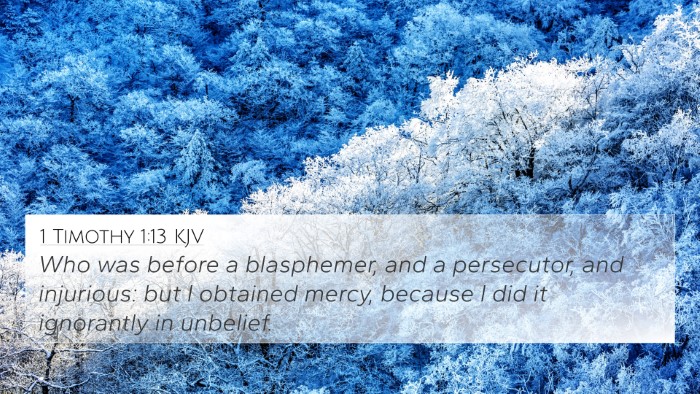Meaning and Interpretation of Numbers 15:27
Numbers 15:27 states: "And if any soul sin through ignorance, then he shall bring a she goat of the first year for a sin offering." This verse highlights the provision for atonement for unintentional sins within the Israelite community. To fully grasp the meaning of this verse, it is beneficial to explore valuable insights from renowned public domain commentaries.
Overview
This scriptural passage emphasizes God's justice and mercy. It recognizes human imperfection, allowing for repentance and making amends through designated offerings. Understanding this verse also leads to a broader examination of themes such as sin, atonement, and divine grace.
Commentary Insights
Matthew Henry's Commentary
Matthew Henry explains that this verse demonstrates God's compassion toward those who sin inadvertently. God provides a means for their restoration, thus emphasizing the importance of being aware of the law and one's actions. The goat symbolizes innocence and sets the stage for the sacrificial system, foreshadowing the ultimate sacrifice of Christ.
Albert Barnes' Notes
Barnes emphasizes the distinction between intentional and unintentional sins in this verse. He notes that while the sin of ignorance may have less severe implications, it nevertheless requires a sin offering to maintain the covenant relationship with God. This approach underscores the seriousness with which God regards all forms of sin, reinforcing that all are accountable before Him.
Adam Clarke's Commentary
Adam Clarke remarks on the significance of acknowledging sin, even if it is committed unknowingly. He highlights the importance of cultivating awareness of God's laws, as ignorance does not absolve one from guilt. Clarke also notes the necessity of a pure offering such as a she-goat, reflecting the purity expected in offerings to God.
Key Thematic Connections
This verse connects with several key biblical themes: atonement, sin, and divine mercy. Below are some of the cross-references associated with this theme:
- Leviticus 4:2 - This verse outlines the process for sin offerings, whether for the priest or the community.
- Hebrews 9:7 - This verse discusses the High Priest's role in atoning for sins, including those done in ignorance.
- James 4:17 - It affirms that knowing to do good and not doing it is sin, linking awareness to responsibility.
- Psalm 19:12 - The verse contemplates hidden faults and acknowledges the need for God's forgiveness.
- 1 John 1:9 - This verse assures us that if we confess our sins, God is faithful to forgive.
- Matthew 12:31-32 - These verses elaborate on the concept of unforgivable sin, distinguishing between types of transgressions.
- Romans 5:20 - This passage speaks to grace abounding where sin increases, reflecting God's mercy in the context of our failings.
- Acts 17:30 - This verse reflects God's command for all people to repent, emphasizing the need for awareness of sin.
- Jeremiah 31:34 - God promises to forgive iniquity and remember sins no more, tying into the theme of mercy and restoration.
- Luke 12:47-48 - These verses discuss punishment in the context of knowledge of good versus evil.
Conclusion
Numbers 15:27 serves as an essential reminder of God's mercy and the sacrificial system that allows for the atonement of unintentional sins. Cross-referencing this verse with others enriches our understanding of biblical themes and the nature of God's forgiveness. By connecting these scriptures, we can better interpret the messages within the Bible and their relevance in our lives.
Suggestions for Further Study
For those keen on delving deeper into this verse and its implications, consider using a Bible concordance or Bible cross-reference guide. Tools for cross-referencing allow for a comprehensive understanding of how various scriptures relate to potential themes, enhancing the study of God's Word through comparative Bible verse analysis.

